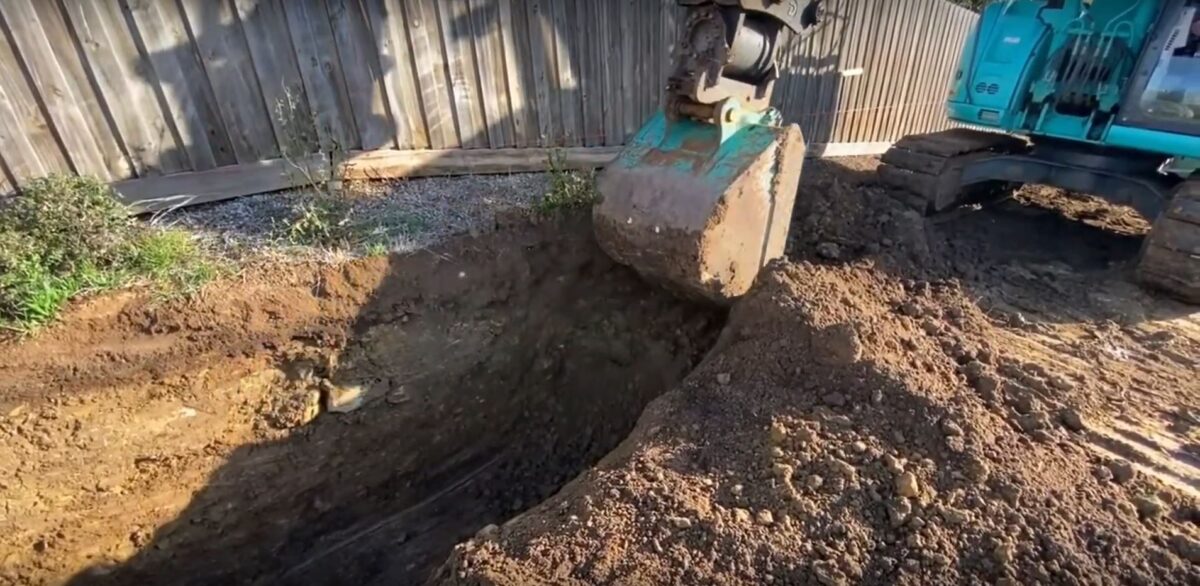How Soil Types in Auckland Influence Excavation Costs
The Underlying Soil Science
Soil is a complex mixture of minerals, organic matter, water, and air. Depending on the balance of these components, soil can have different textures, strengths, and behaviours. For an earthmoving project, it’s crucial to understand the soil type in Auckland as it directly impacts the excavation process.
Auckland’s Diverse Soil Types and Excavation
Auckland is not just a city of sails but also a city of soils. The type of soil in an area dictates the excavation method, equipment used, and the duration of the project. Generally, Auckland’s soil types include:
- Loam: This is a balanced mix of sand, silt, and clay. It’s often considered the best soil for gardening, but when it comes to excavation, it can be easily dug out, translating to lower costs.
- Clay: Prevalent in some parts of Auckland, clay is dense, heavy, and sticky when wet. It can be challenging to excavate, especially during the rainy season, often leading to higher costs.
- Sand and Gravel: These are free-draining soils. Sand, in particular, can be a challenge since its loose nature can cause it to collapse back into the excavation site.
Example Suburbs: Excavation in Mount Roskill and Ponsonby
Mount Roskill, with its hilly terrain and mixed soil profile, can present unique challenges for earthmoving projects. The blend of loam and clay in certain parts means that careful consideration must be given to excavation methods to ensure safety and efficiency.
Ponsonby, on the other hand, with its older infrastructure, sometimes reveals layers of mixed fill soil, which can vary in consistency and compaction. This historical layering can increase the complexity and cost of excavation.
Health, Safety, and Environmental Risks
Ensuring safety during excavation is paramount. Some soils, like sandy terrains, can collapse easily, presenting a risk to workers and machinery. Additionally, Auckland’s wet climate can make clay soils treacherous, increasing the risk of slips and slides.
Council Regulations and Considerations
It’s not just the physical properties of soil that can impact excavation costs. Auckland Council has bylaws and codes of practice that outline safety measures, waste disposal methods, and other essential practices during excavation. These regulations might increase project costs, especially if special measures need to be implemented.
Alternative Excavation Techniques: A Brief Comparison
| Method | Suitability | Cost Factor | Specifications |
| Manual digging | Best for softer soils like loam | Low | Labour-intensive, slower |
| Trenching | Ideal for laying pipes or cables | Moderate | Requires specialised equipment |
| Hydro excavation | Used in areas with utility lines | High | Uses water pressure; minimises risk |
Auckland Council Bylaws and Regulations for Excavation
- Ensure safety barriers are installed around excavation sites.
- Proper disposal methods for waste soil must be observed.
- Dewatering practices must be in place for sites with high water table levels.
- Regular inspections and assessments of the site are mandatory.
- Ensure minimal disruption to public utilities and roads during the excavation.
Engaging with Earthmoving Auckland
Understanding soil types and the challenges they pose is crucial before undertaking any excavation project in Auckland. For the best results, always engage with professionals like Earthmoving Auckland, where the blend of expertise and local knowledge ensures your earthworks project is carried out efficiently, safely, and in line with all necessary regulations.
Frequently Asked Questions:
How do soil types influence excavation methods?
Different soil types have distinct physical properties, affecting the ease or difficulty of excavation. For instance, sandy soils might require support to prevent collapsing, while clay soils can be harder to dig through and may need specific equipment.
Why are excavation costs higher in some Auckland suburbs?
Costs can vary due to the soil profile in certain areas. For instance, areas with dense clay or mixed fill soil, such as Ponsonby, may require more time and specialised equipment, driving up costs. Additionally, accessibility and local regulations can also influence the cost.
What precautions are necessary for safe excavation?
Depending on the soil type, safety precautions might include using support structures in sandy terrains, employing specific machinery for hard clay soils, and following Auckland Council’s regulations, especially regarding waste disposal and site safety.
Why engage Earthmoving Auckland for excavation projects?
Earthmoving Auckland brings a combination of local expertise and technical knowledge. They understand the unique challenges posed by Auckland’s varied soils and are adept at navigating local regulations and ensuring projects are executed safely and efficiently.
Are there any environmental concerns related to excavation?
Yes, excavation can disrupt the natural soil profile, affect drainage patterns, and lead to sediment runoff. It’s essential to follow best practices and Auckland Council guidelines to minimise these environmental impacts.
Key Takeaways
Soil Types Matter in Excavation Costs Different soil types in Auckland suburbs significantly influence the excavation methods and associated costs. Specific areas with challenging soil profiles might need special equipment or techniques.
Local Regulations Play a Crucial Role Auckland Council has specific regulations and codes that dictate how excavation should be conducted, ensuring safety and minimal environmental disruption.
Safety First Given the variety of soil types and potential risks, it’s crucial to implement appropriate safety measures during excavation. This might include using supports in loose soils or specialized machinery for dense terrains.
Earthmoving Auckland is a Reliable Choice For those considering excavation projects in Auckland, Earthmoving Auckland offers a blend of local knowledge and technical expertise, ensuring projects are completed efficiently and safely.
Environmental Concerns are Paramount Beyond costs and methods, it’s vital to consider the environmental implications of excavation. Proper techniques and adherence to local guidelines can help mitigate potential negative impacts on the environment.

